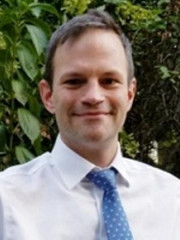6 Experts Available For Analysis On Supreme Court Social Media Cases
On February 21st and 22nd, the Supreme Court is hearing two cases with important implications for social media, digital speech, and Section 230 - Gonzalez v. Google and Twitter v. Taamneh. For reporters seeking expert sources for their coverage of the cases, the following researchers are available to provide comments.

Buente's research focuses on the interplay between society and information and communication technologies (ICTs), including issues relating to information systems, digital inequality, social media and health disparities.

Chen's research employs data science and machine learning methods as well as interviews to examine how digital media and technologies affect politicians' accountability to public well-being and how deliberative designs can improve the quality of public discourse on controversial & emerging technologies and mitigate the spread of misinformation.

Leicht’s research focuses on the consequences of social inequality, social media misinformation, economic development, and political sociology. Leicht has testified before Congress on issues of social media misinformation and is the PI on a research and development project developing AI tools to fight social media misinformation.

Miller researches computational approaches to understanding hate speech, radicalization, and witness testimony. His work has been supported by the Department of Defense, National Science Foundations, the Royal Netherlands Academy of Arts and Sciences, the Mellon Foundation, and the Knight Foundation, and has appeared in venues in computer science, political science, the humanities, and urban studies.

Rohlinger's research focuses on communications, conservative movements, and civic engagement. Overarching themes in Rohlinger's writing include the effects of digital media on political participation and activism as well as the role of virtual communities in political polarization.

Sobieraj is an expert on digital abuse and harassment and extreme political incivility. Her book, Credible Threat: Attacks Against Women Online and the Future of Democracy, explores the impact of identity-based digital abuse on women’s participation in public discourse.
